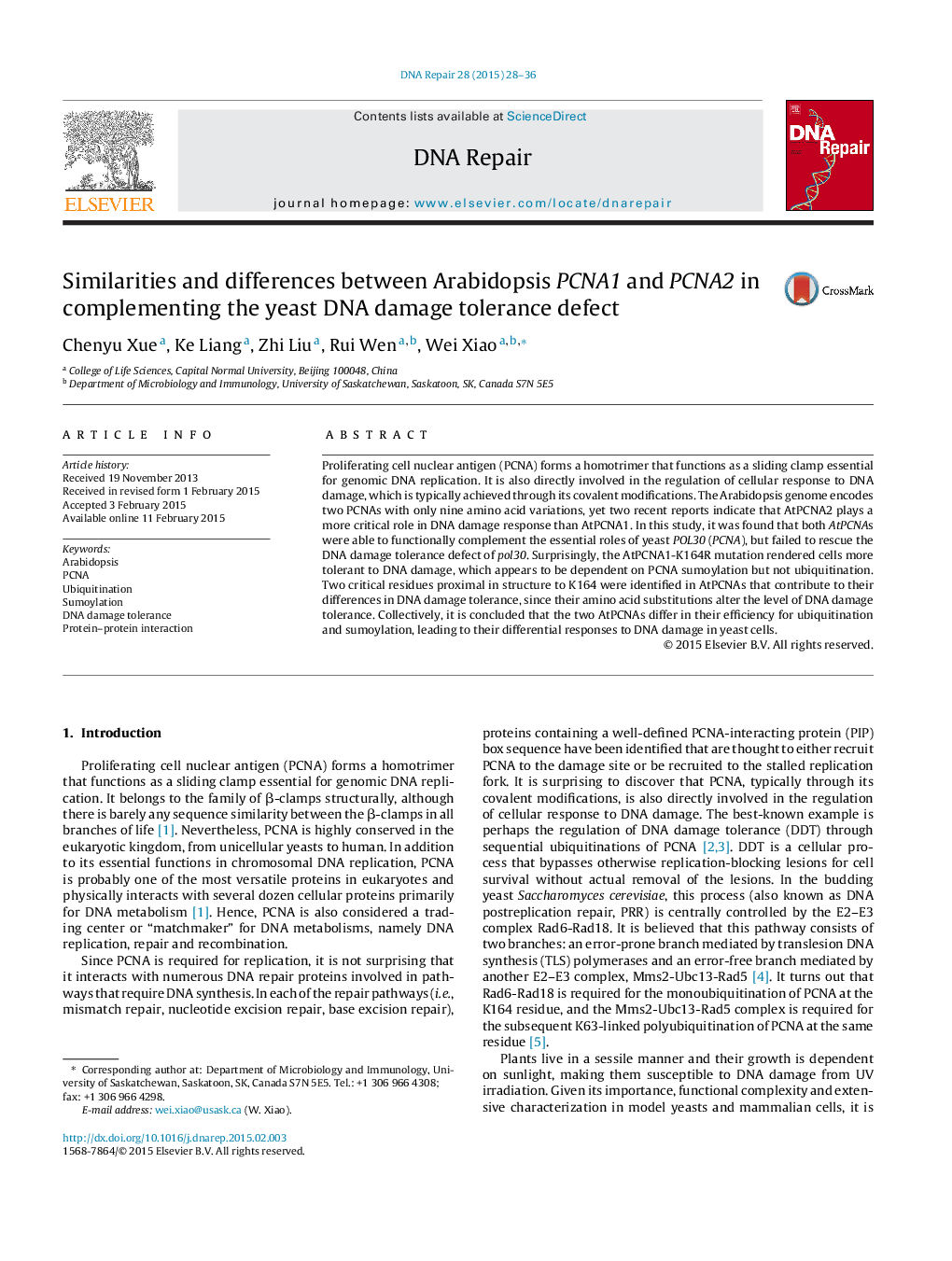| Article ID | Journal | Published Year | Pages | File Type |
|---|---|---|---|---|
| 1980115 | DNA Repair | 2015 | 9 Pages |
•Both Arabidopsis PCNA genes are able to complement the yeast POL30 essential functions.•They were unable to perform the DNA damage tolerance function in yeast.•Their K164R mutations gain tolerance to DNA damage in a sumoylation-dependent and ubiquitination-independent manner.•The PCNA-Ub fusions can restore the DDT function in yeast.•The two Arabidopsis PCNA genes function differently in yeast pol30 mutant partly due to their different Lys residues adjacent to K164.
Proliferating cell nuclear antigen (PCNA) forms a homotrimer that functions as a sliding clamp essential for genomic DNA replication. It is also directly involved in the regulation of cellular response to DNA damage, which is typically achieved through its covalent modifications. The Arabidopsis genome encodes two PCNAs with only nine amino acid variations, yet two recent reports indicate that AtPCNA2 plays a more critical role in DNA damage response than AtPCNA1. In this study, it was found that both AtPCNAs were able to functionally complement the essential roles of yeast POL30 (PCNA), but failed to rescue the DNA damage tolerance defect of pol30. Surprisingly, the AtPCNA1-K164R mutation rendered cells more tolerant to DNA damage, which appears to be dependent on PCNA sumoylation but not ubiquitination. Two critical residues proximal in structure to K164 were identified in AtPCNAs that contribute to their differences in DNA damage tolerance, since their amino acid substitutions alter the level of DNA damage tolerance. Collectively, it is concluded that the two AtPCNAs differ in their efficiency for ubiquitination and sumoylation, leading to their differential responses to DNA damage in yeast cells.
